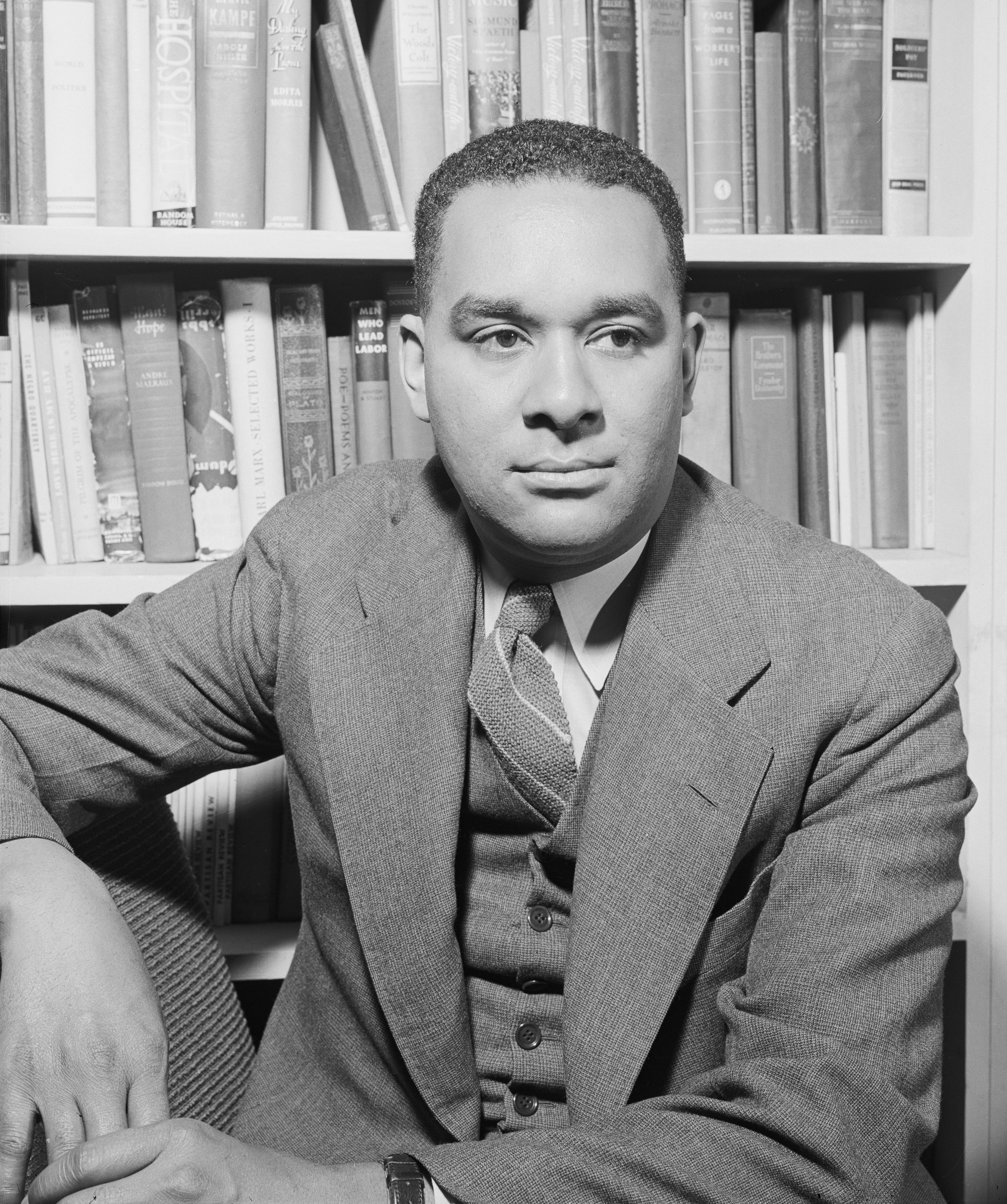Wright, Richard (1908-1960), is often considered the most important African American writer of his time. He earned a reputation for artistic excellence and his outspoken criticism of racial discrimination.

Wright’s first novel, Native Son (1940), tells the story of Bigger Thomas, a Black Chicago teenager who accidentally kills a white woman. Thomas later rapes and murders his Black girlfriend. Bigger is pursued, tried, and sentenced to death. Native Son is an example of Naturalism, a work written in a realistic style that shows how nature or social conditions influence a character’s life. The novel condemns the injustice and poverty that lead Bigger Thomas into crime. Wright warned that this social environment threatens to produce other hopeless young adults like Bigger.
Wright’s first book, Uncle Tom’s Children (1938), is a collection of short stories set in the South about Black males who encounter racial violence. 12 Million Black Voices (1941) is a pictorial history of African Americans in the United States. Black Boy (1945) is Wright’s account of his childhood and youth in the segregated South. In the 1940’s, Wright moved to France. He wrote poetry, book reviews, and essays about his political views, including about his temporary association with the Communist Party. Wright wrote four novels late in his career, as well as the second part of his autobiography, American Hunger (published in 1977, after his death). He wrote more than 4,000 short poems in the Japanese form called haiku. Twelve of them were published in 2018, after his death, as Seeing into Tomorrow.
Wright was born on Sept. 4, 1908, near Natchez, Mississippi. In 1941, he was awarded the Spingarn Medal for his achievement in literature. He died on Nov. 28, 1960. In 1991, the Library of America published authoritative editions of two volumes of Wright’s writings as Early Works and Later Works. In 2021, the Library of America published The Man Who Lived Underground, a novel written in 1941 to 1942 but never before published in its complete form, along with an essay by Wright. In the novel, a Black man is beaten by police to obtain a false murder confession, but then escapes and finds refuge in the city’s sewers. As the man explores a series of buildings from underground, he uncovers aspects of society’s racism and exploitation.
